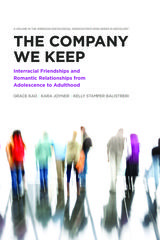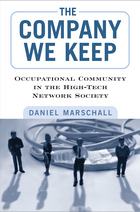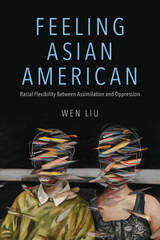
While research on interracial social ties has often focused on whites and blacks, Hispanics are the largest minority group and Asian Americans are the fastest growing racial group in the United States. The Company We Keep examines friendships and romantic relationships among blacks, whites, Hispanics, and Asian Americans to better understand the full spectrum of contemporary race relations. Using data from the National Longitudinal Study of Adolescent to Adult Health, the authors explore the social ties of more than 15,000 individuals from their first survey responses as middle and high school students in the mid-1990s through young adulthood nearly fifteen years later. They find that while approval for interracial marriages has increased and is nearly universal among young people, interracial friendships and romantic relationships remain relatively rare, especially for whites and blacks. Black women are particularly disadvantaged in forming interracial romantic relationships, while Asian men are disadvantaged in the formation of any romantic relationships, both as adolescents and as young adults. They also find that people in same-sex romantic relationships are more likely to have partners from a different racial group than are people in different-sex relationships. The authors pay close attention to how the formation of interracial friendships and romantic relationships depends on opportunities for interracial contact. They find that the number of students choosing different-race friends and romantic partners is greater in schools that are more racially diverse, indicating that school segregation has a profound impact on young people’s social ties.
Kao, Joyner, and Balistreri analyze the ways school diversity and adolescent interracial contact intersect to lay the groundwork for interracial relationships in young adulthood. The Company We Keep provides compelling insights and hope for the future of living and loving across racial divides.

At the birth of the Internet Age, computer technologists in small, aggressive software development companies became part of a unique networked occupational community. They were creative, team-oriented, and enthusiastic workers who built "boundaryless careers," hopping from one employer to another.
In his absorbing ethnography The Company We Keep, sociologist Daniel Marschall immerses himself in IntenSivity, one such technological workplace. Chronicling the employees' experiences, Marschall examines how these workers characterize their occupational culture, share values and work practices, and help one another within their community. He sheds light on the nature of this industry marked by highly skilled jobs and rapid technological change.
The experiences at IntenSivity are now mirrored by employees at Facebook and thousands of other cutting-edge, high-tech start-up firms. The Company We Keep helps us understand the emergence of virtual work communities and the character of the contemporary labor market at the level of a small enterprise.

Whether we are black, gay, Republican, women, or deaf, our associations--whether voluntary or assigned--constitute crucial and inescapable elements of our identities. Both voluntary and involuntary groups have been important in American history--more important than is generally recognized. But these groups have never been adequately addressed by law, which has as its primary focus the relationship between the individual and the state. The company we keep, says the constitutional law scholar Aviam Soifer, is presumed to be each person's own business, and generally beyond notice of the law. But as America becomes a more varied country and issues arising out of multiculturalism threaten to divide us, it becomes essential, Soifer argues, to recognize rights under the First Amendment that will protect the crucial roles of groups and communities within the larger national community.
Legal doctrine and the outcomes reached in judicial proceedings will be more coherent if we acknowledge that groups qua groups have significant legal impact. The building blocks of any quest for justice must include the groups--social, political, professional, civil, interpretive, religious--from which we derive and apply ethical standards in search of a better life. The ability to step outside traditional doctrinal boxes that concentrate on relationships between individuals and government will help not only legal thinkers but every person to reason toward justice.
Using history and literature to explore the complex issues of individual and group rights, Law and the Company We Keep is the first sustained account of the presence and importance of groups in our legal culture. It confronts central questions about the multiple roles of culture and symbol in defining our groups, and through them, our lives.
READERS
Browse our collection.
PUBLISHERS
See BiblioVault's publisher services.
STUDENT SERVICES
Files for college accessibility offices.
UChicago Accessibility Resources
home | accessibility | search | about | contact us
BiblioVault ® 2001 - 2024
The University of Chicago Press









